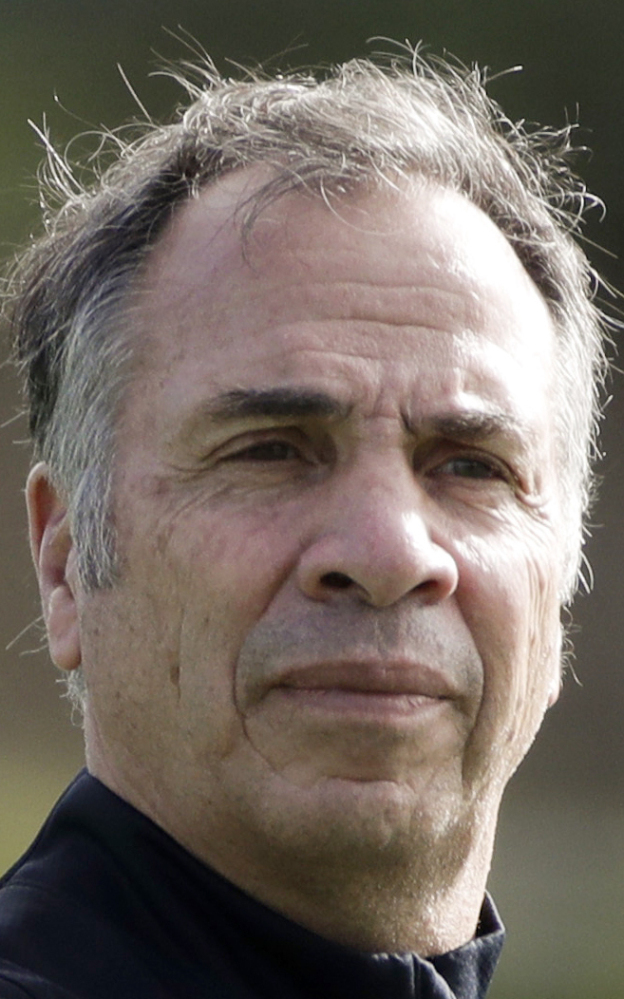PANAMA CITY — Alejandro Bedoya missed a goal in training, and Bruce Arena wanted to make sure the midfielder knew he noticed.
“He threatened to chop my man bun off,” Bedoya said, smiling. “That’s the kind of grief I get around here.”
Humor has returned to the U.S. national team since Arena replaced Jurgen Klinsmann as coach in November, following losses in the first two games in the final round of World Cup qualifying. In the first competitive match of Arena 2.0, the U.S. responded with a 6-0 rout of Honduras on Friday, and the Americans could even their record quickly with a win at Panama on Tuesday night.
A member of the U.S. National Soccer Hall of Fame who coached the national team from 1998-2006, Arena wanted to quickly put aside worries the Americans would fail to qualify for an eighth straight World Cup. He turned over staff, tore up rules and defined roles in his first four months. He discarded Klinsmann’s curfew, eliminated the prohibition on meetings with agents at the team hotel, limited training sessions to one per day and allowed the support staff to sit in on video analysis sessions with players.
“Be on time and be respectful. Those are the rules,” he said Monday. “If it’s my job to control them all day, then I don’t think we have a chance, and I’m basically not interested in doing it. I’d just open up a preschool somewhere.”
If not quite chaos under Klinsmann, there was constant uncertainty. Arena brought his own brand of Brooklyn bluntness back to the job, a self-confidence boosted by five NCAA titles at Virginia and five Major League Soccer championships with D.C. United and the L.A. Galaxy.
“If I was coaching college today I’d be fired because there’s too many rules,” he said. “In my days there was nothing wrong with having a beer with one of your players.”
Veteran players say Arena is a steady presence.
“I think we’re all surprised by the sarcasm. That’s Bruce. It’s great. It keeps you on your toes. He’s tough to impress and all of that hasn’t changed,” goalie Tim Howard said. “If you get a ‘pretty good’ from Bruce, you feel like you’re on top of the world because that’s all you get.”
According to the captain, Michael Bradley, Arena re-established “what we emphasize, the group, the mentality, the identity, the spirit.”
“A lot of us felt like over this past stretch some of those things had started to drop a little bit,” Bradley said.
National teams are far different than clubs, where coaches preside over their players for roughly 10 months a year. National teams come together for a week or so several times a year.
When players gathered last week, Arena brought in Tom Perrin, a sports psychologist who has worked with him since they were together at Virginia.
“He works in the NBA,” Arena said. “And you think we’ve got problems?”
Send questions/comments to the editors.



Success. Please wait for the page to reload. If the page does not reload within 5 seconds, please refresh the page.
Enter your email and password to access comments.
Hi, to comment on stories you must . This profile is in addition to your subscription and website login.
Already have a commenting profile? .
Invalid username/password.
Please check your email to confirm and complete your registration.
Only subscribers are eligible to post comments. Please subscribe or login first for digital access. Here’s why.
Use the form below to reset your password. When you've submitted your account email, we will send an email with a reset code.